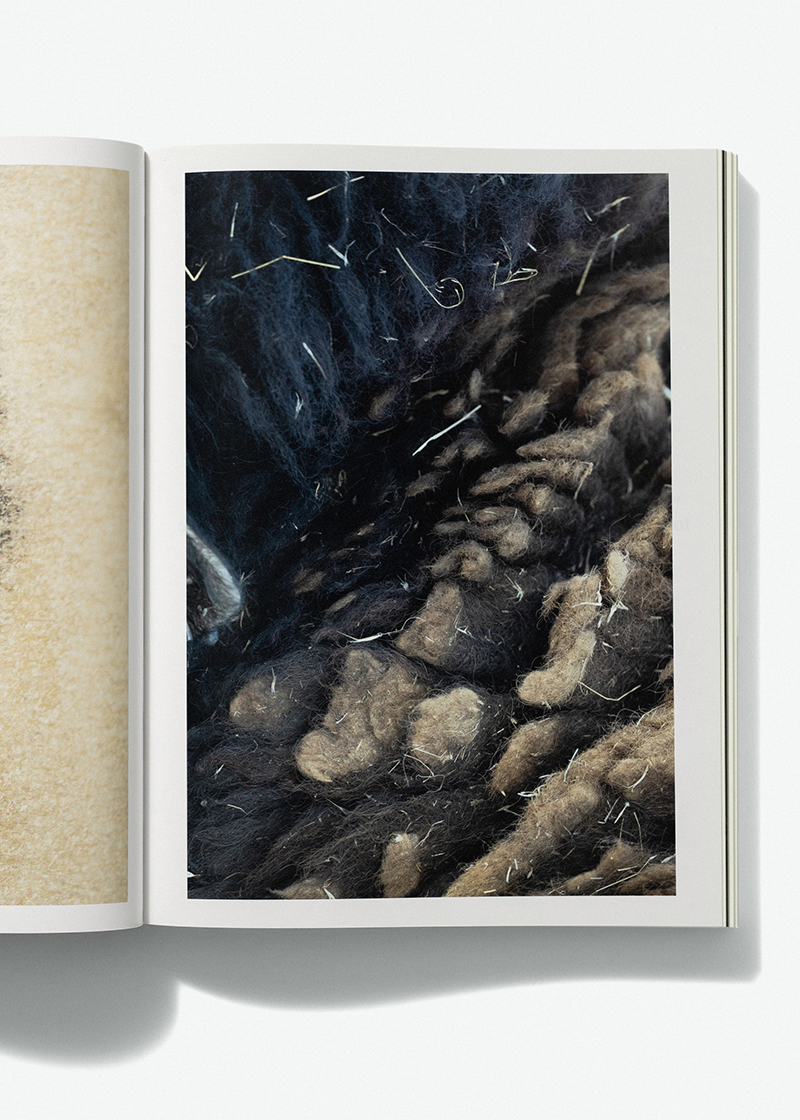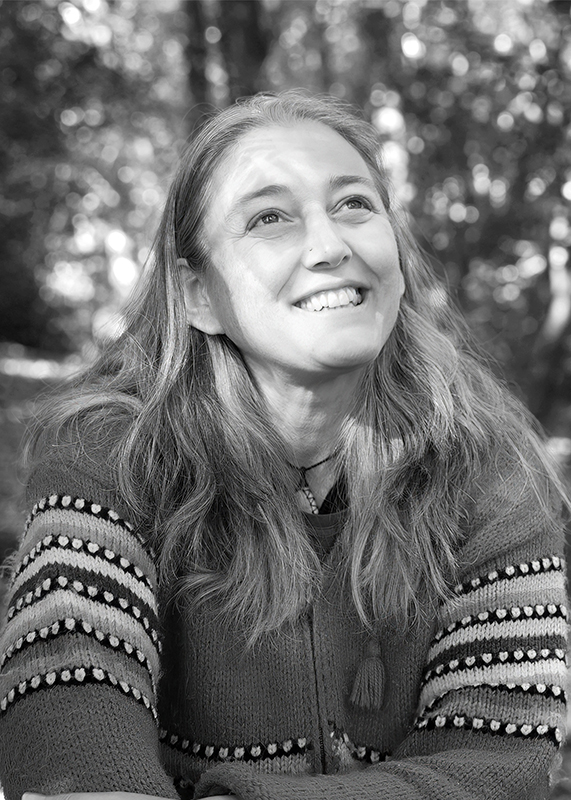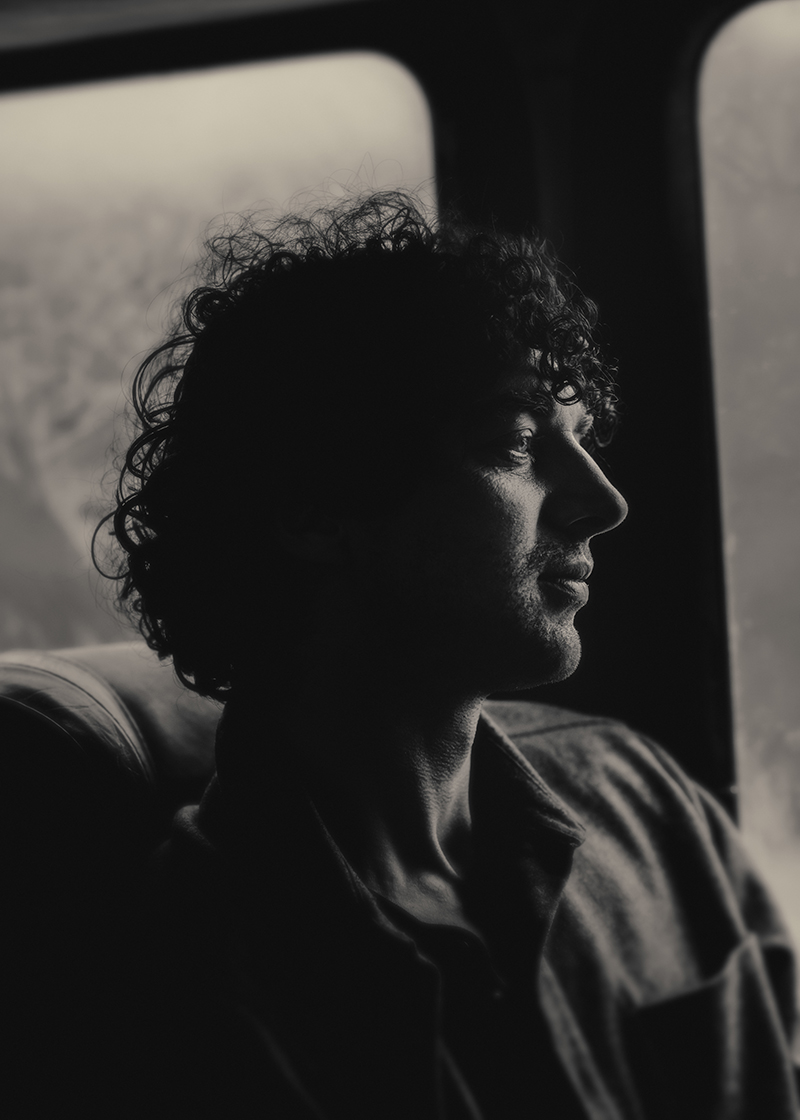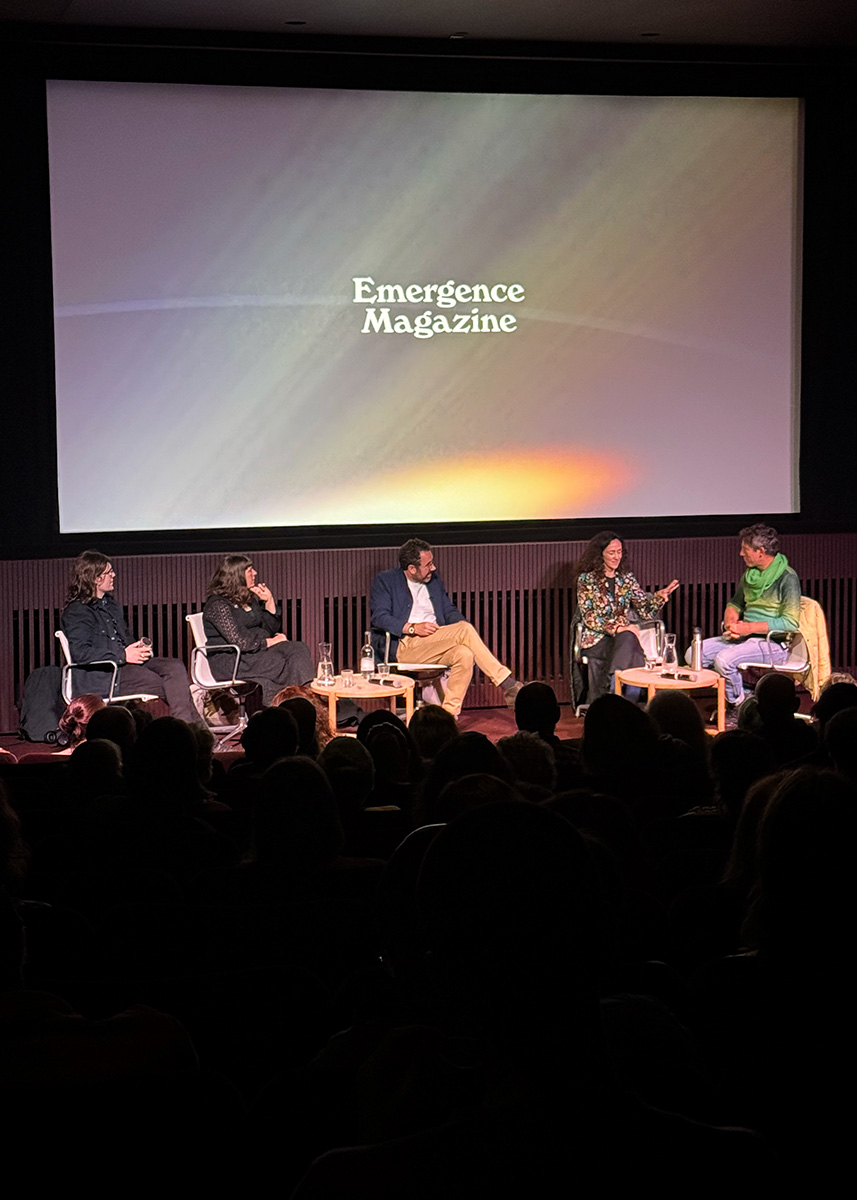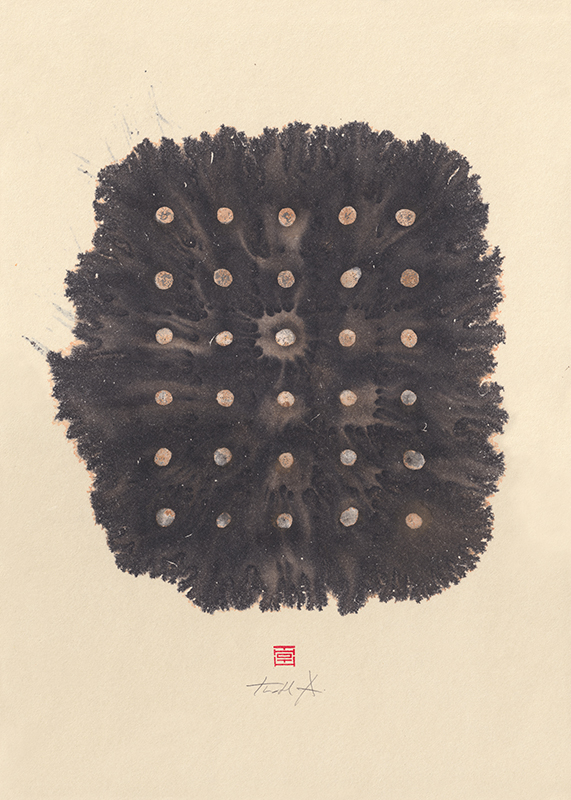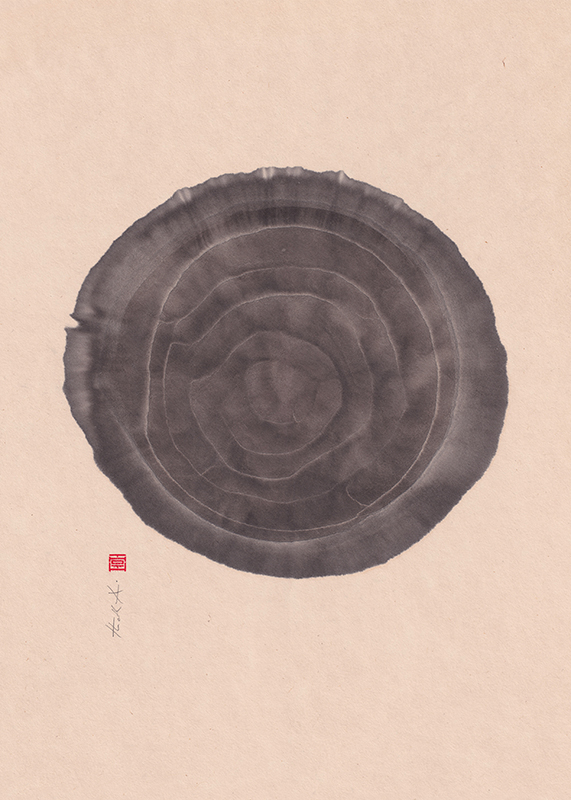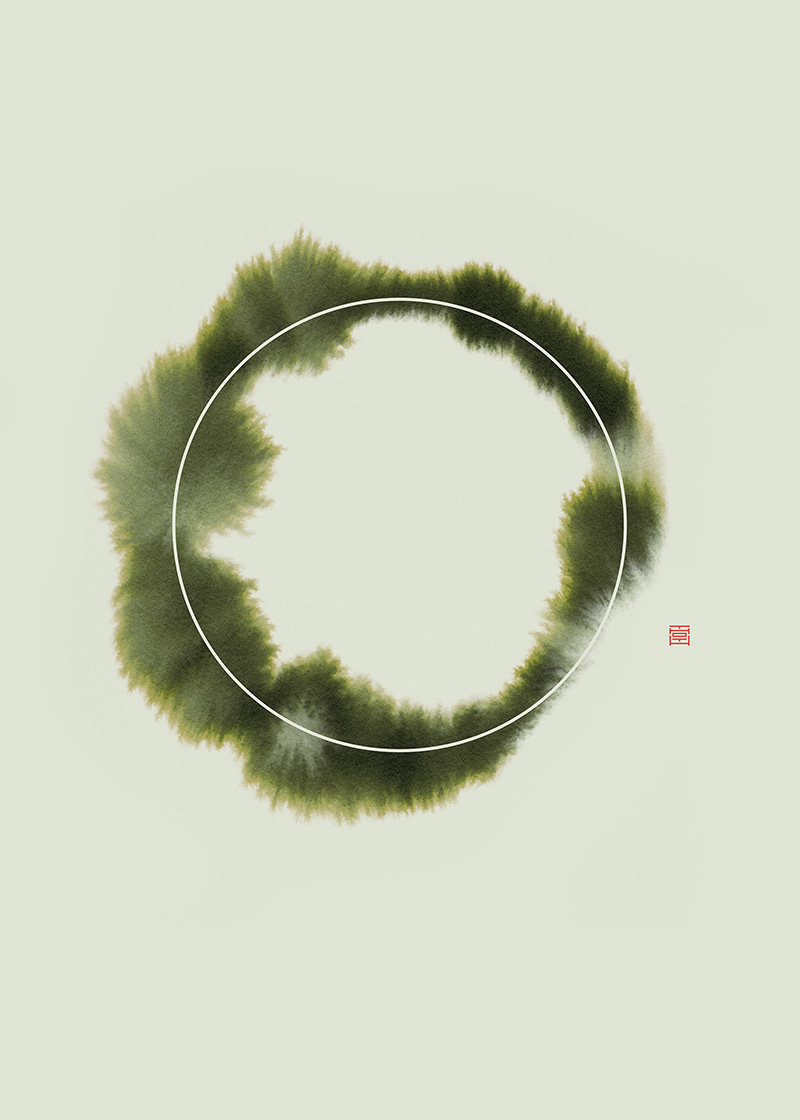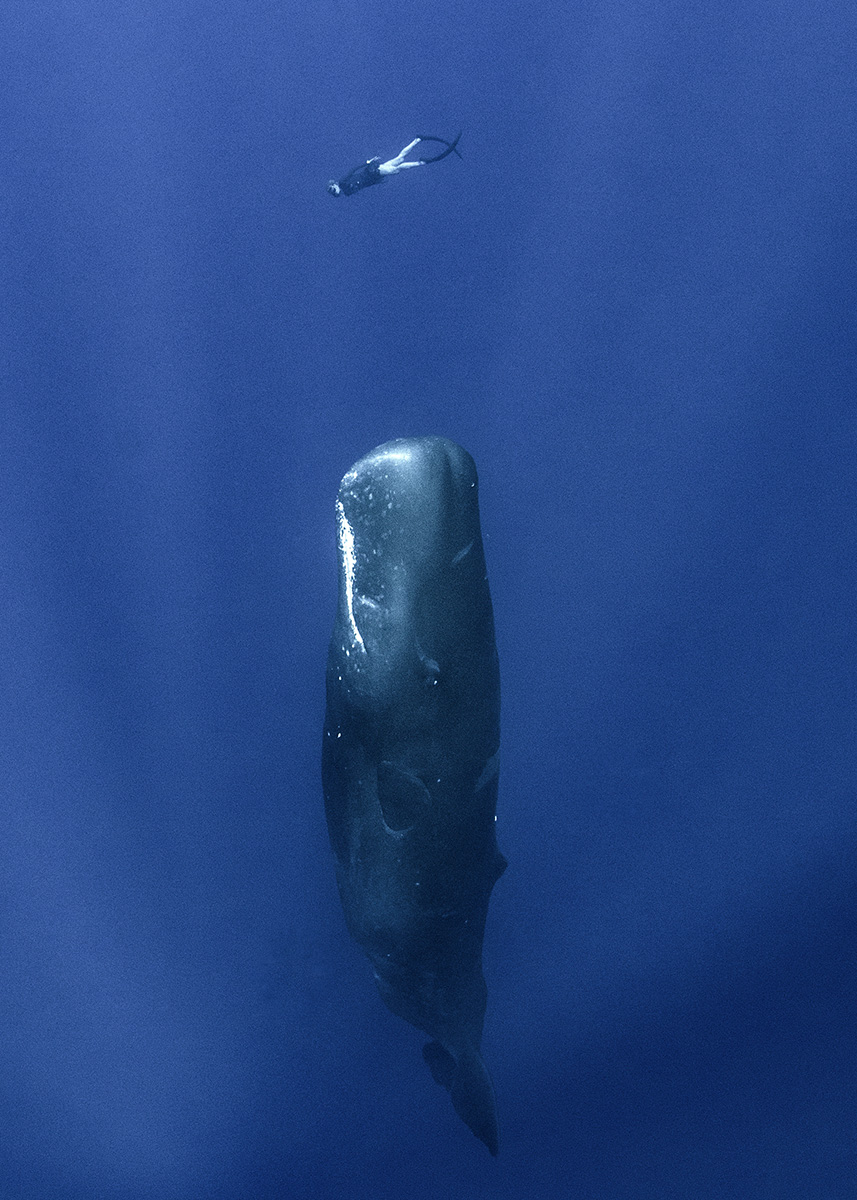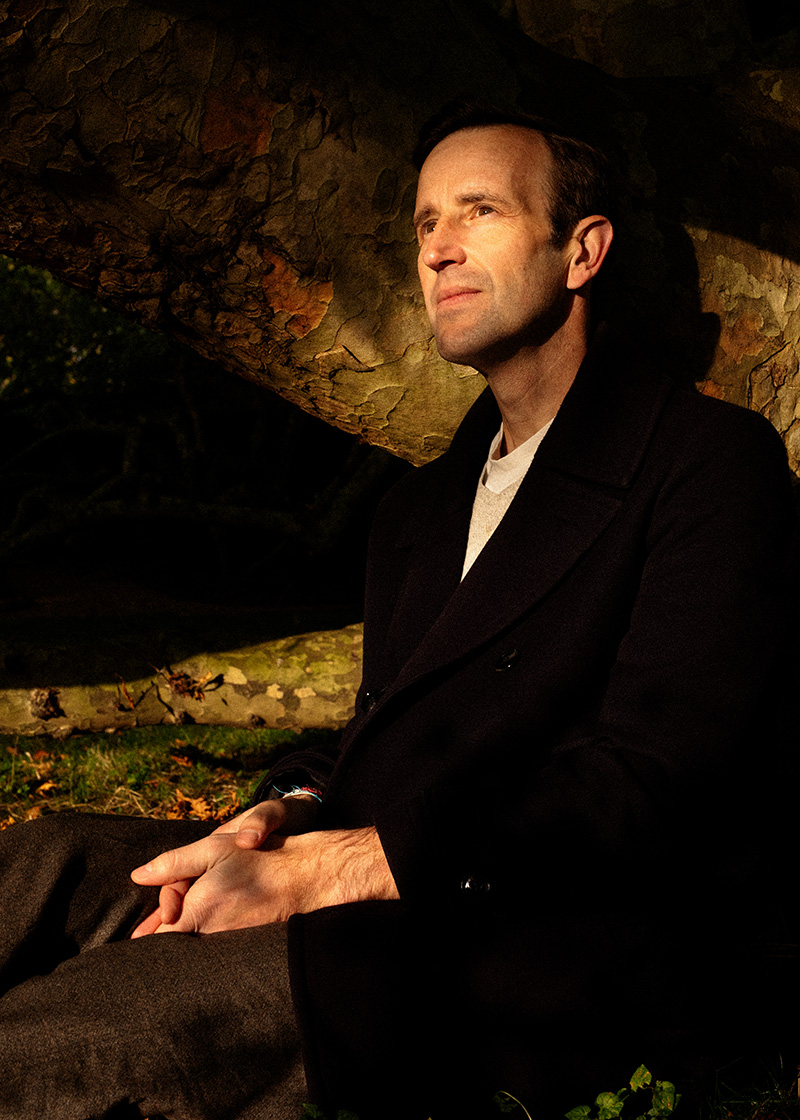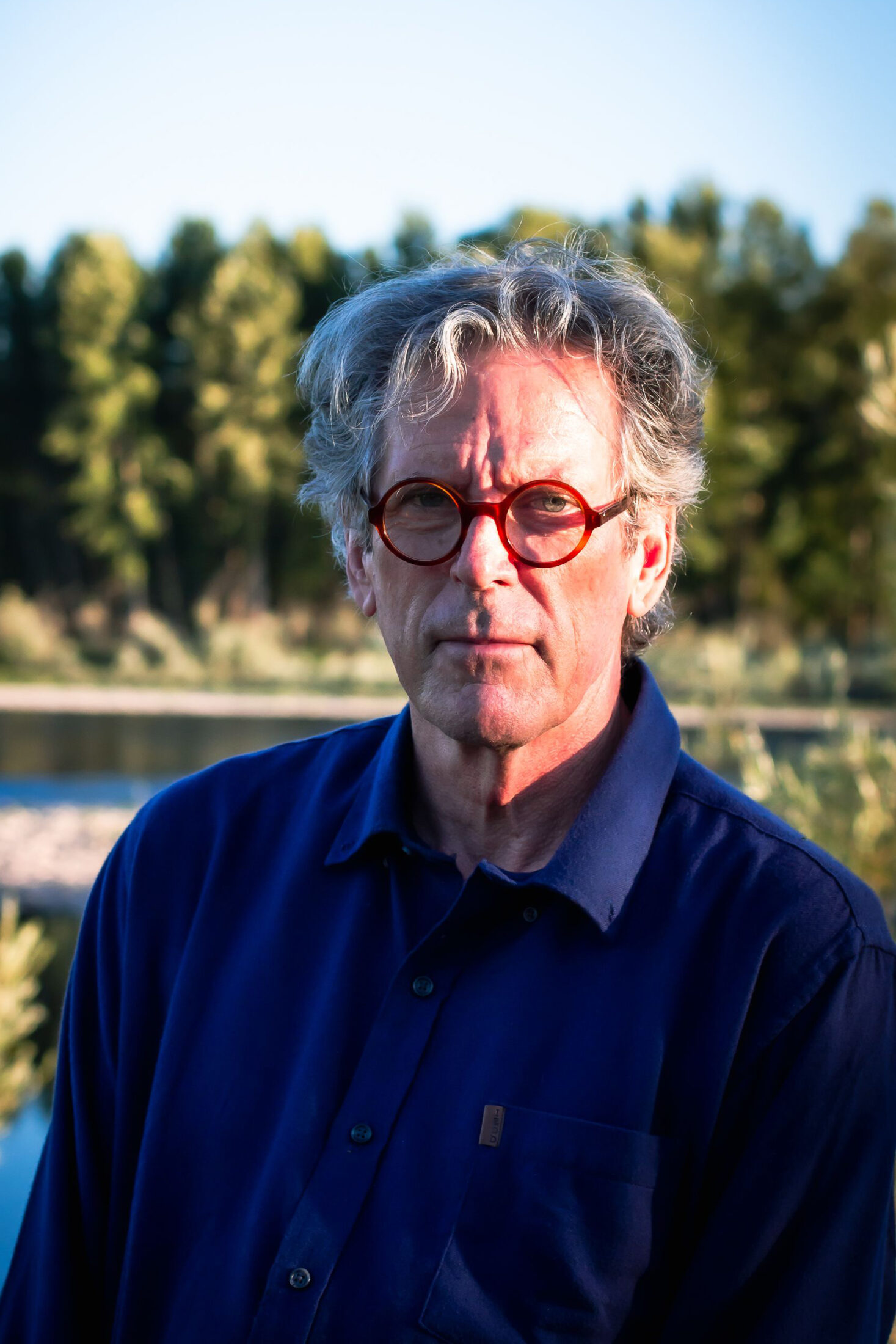
Sun House
David James Duncan is author of the award-winning novels The River Why and The Brothers K, and most recently, Sun House; the nonfiction collection My Story as Told by Water, which was a finalist for the National Book Award; the best-selling collection of “churchless sermons” God Laughs and Plays; and the story collection River Teeth. His recognitions include three Pacific Northwest Booksellers Awards, two Pushcart Prizes, a Lannan Fellowship, and the American Library Association’s 2004 Award for the Preservation of Intellectual Freedom (with co-author Wendell Berry). David lives on a charming little trout stream in Missoula, Montana, in accord with his late friend Jim Harrison’s advice to finish his life disguised as a creek.
Emmanuel Vaughan-Lee is an author, Emmy- and Peabody Award–nominated filmmaker, and a Sufi teacher. He has directed more than twenty documentary films, including Taste of the Land, The Last Ice Age, Aloha Āina, The Nightingale’s Song, Earthrise, Sanctuaries of Silence, and Elemental, among others. His films have been screened at New York Film Festival, Tribeca Film Festival, SXSW, and Hot Docs, exhibited at the Smithsonian Museum and London’s Barbican, and featured on PBS POV, National Geographic, The New Yorker, and The New York Times Op-Docs. His new book, Remembering Earth: A Spiritual Ecology, is forthcoming from Shambhala in summer 2026. He is the founder, podcast host, and executive editor of Emergence Magazine.
In this conversation, author David James Duncan speaks about his new epic novel, Sun House, which follows an eclectic collection of characters as they each seek Truth and meaning, ultimately forming an unintentional community in rural Montana. Talking about the ways a heart can be transformed by deep experiences of mystical transcendence, David shares the impetus behind the novel to impart an experiential model of contemplative inner life that could help us navigate our ecological unraveling.
Transcript
Emmanuel Vaughan-LeeWelcome to the show, David. It’s lovely to be in conversation with you today.
David James DuncanVery happy to be here, Emmanuel.
EVSo I must say I loved Sun House. One of the most meaningful books, fiction or nonfiction, that I’ve read in years. Really, really moved me. And I wanted to start by asking you about the genesis of the book. And in the book the main narrator, who is nicknamed the Holy Goat, he describes kind of the impetus behind the book, but it’s also stated very emphatically at the beginning of your acknowledgments, where you write, “Though I’d seen countless op-eds calling for a change in consciousness if humanity is to survive, I’d seen zero op-ed descriptions of what this consciousness looks, feels, tastes, sounds, and lives like as it addresses inescapable biological and spiritual realities with the love, truthfulness, and justice they demand.” I mean, that’s a very powerful and creative mandate to begin a book with, to aim to create something that brings this consciousness to life. Tell me about this.
DJDA big impetus for me kind of tightrope walks along the edge of spiritual secrecy, but the Beguine mystics, thirteenth- and fourteenth-century Beguine mystics, whose champion was Meister Eckhart, have really spoken to me for a lot of years. I wrote a book in 2006 called God Laughs and Plays. It’s kind of all the parts of Christianity—which is almost purely the mysticism—that have survived in my heart. The church, no, not at all. And these mystics were really cornered by the Church Fathers. Women in those centuries were defined as manqués, which is a less-than-human person who incubates the infant for the man whose child it is. The woman, who’s totally caring for the infant, isn’t even acknowledged as the person to whom the infant belongs. Women weren’t allowed to study Latin, so they couldn’t change the theology. They couldn’t fight to change the theology that had reduced them to something less than fully human. But the wonderful thing that it did was, because they couldn’t study Latin—it was about the time that Bernard of Clairvaux said, “Love itself is knowledge”—and the Beguines took that idea and ran with it. And just, it was all about a personal relationship with mystical Jesus and also the sermons of Meister Eckhart. And some of the Beguines, a couple of the Beguines who preceded him, I would guess, mentored him, because the mysticism is so similar, sometimes even exact phrases. There have been scholarly essays written about this. But I was in love with them because of a connection I experienced through my connection to India and was convinced that their béguinages, their communities, their spiritual communities, might be a model for what’s coming. And that idea was just so exciting to me that it just energized me to really do the scholarship, explore their lives, but then try to get it down out of the realm of scholarship into something much more experiential.
There’s also a connection to— I once heard a master of sorts give a kind of spiritual interpretation to Cole Porter’s hit song, “Begin the Beguine,” and he turned the lyrics into a mystical track. And I was fascinated by that. The thing is, when you turn to the mystics, there’s an experience of unity that crosses religious lines. If you just leave the dogmas of each major wisdom tradition, the religious dogmas, and turn to the mystical experience and the way that’s being talked about by these great masters, it’s fascinating and you can feel the unity to the point where I sometimes think Zen master Dōgen and Meister Eckhart might have been the same person who just switched sides of the Earth on the next incarnation. And it’s just endlessly fascinating. It has the quality that mythology has for us, or reading Catherine of Siena, or hearing Mother Teresa say just simple but iconic statements like, “When I finally see Jesus, I’ll tell him I loved him in the dark.” Or “May God break my heart so completely that the whole world falls in.” That’s what the mystics are trying to do. She was a very practical woman, but she really— those statements would fit right into something John of the Cross might say.
EVI mean, one thing that touched me so deeply in reading the book was, you know, you have this impetus, which you describe, of wanting to impart some sort of example of what this consciousness might look like through the form of the novel. But rather than really painting an ecological or social or political or economic reality and picture of what things might look like—I mean, that’s there in the background for sure—the emphasis is really, as you’re describing, on a mystical and contemplative existence. And your characters are all searching for truth in their own ways. And I mean, this was very unique among the works of fiction that might be also responding to that kind of impetus of trying to offer a way to see how we might relate to the living world, the Earth, in a different way at this time of climate crisis. So this contemplative mystical essence seems so fundamental here to the story you’re trying to tell.
DJDWell, I had mystical experiences as a child. I’m embarrassed to say that, but I feel like an ingrate if I don’t say it, because they were guiding experiences, especially helpful when I lost my brother when I was thirteen. He was seventeen. And that was one of those instances where heartbreak can lead to the heart breaking open and new things pouring in, and that experience very much—that loss—had that effect on me. I met a bunch of older and wiser friends when I was still in high school. I would hitchhike down to Stanford University. I had a friend there a couple years older who I’d become close to. He’d lost his father about the same time I lost my brother. And also, we were both on a golf team. I was a ridiculously good golfer when I was seventeen years old. It meant nothing to me. And also, because my brother had died, like I would cheat and I felt the Lord— I deserved that leeway because I had been screwed. But I met wonderful people. I mean, one of them is now the great scholar of Islamic literature and mysticism, Carl W. Ernst, who is still active. And another friend, very close friend—all the little bits of Sanskrit that are in Sun House are compliments of him. And I still owe him a bottle of single malt scotch for the favors he did to Sanskrit in Sun House.
EVSo the early influences of your own experiences and your friends really colored the creation of these characters wanting to find meaning and respond to the crisis that we’re in. I mean, I felt that. It felt remarkably personal at times; that made me wonder, you know, all these different characters, are they really an amalgamation of your own experiences and journeys over the years?
DJDWell, you know, I love Montana. I love it in a physical way that’s very outdoorsy. You know, backpacking, fly fishing, just spending time standing in rivers, birding—there are so many wonderful hikes available right outside this studio around Missoula, Montana. It’s just ever present. And so I wanted to combine the landscape that comes out in this secretive mountain culture, the Lûmi people. But I wanted to create a mystique about it that— I just wanted the book to stay in a realm where I just thought, I like to imagine Thomas Merton would enjoy reading Sun House. And I know that’s an ambitious thought, but Thomas Merton, I felt so close to him when I fell in love with Meister Eckhart when I was nineteen in a food stamp store. When I was reading his sermon, “God Laughs and Plays,” I just looked around at the almost intentional grubbiness of this governmental place where they made people beg for food, and it struck me as comical. I stopped getting food stamps and found a dented can store, warehouse, in Portland, and if the can didn’t explode, I ate the chicken noodle soup or whatever it was and learned how to be incredibly thrifty. And I also became self-employed, because I wanted to live— Jim Harrison said, “Somebody needs to stay outside.” And for me that meant, as it did for Jim, stay outside the academy, stay outside the university system, stay outside any kind of church—and that still leaves a lot. And my friendships have been in that outside world. It’s more likely that I’ll be close to a fisheries biologist than any kind of a preacher. I have a few friends who are clerics, but not many, and the ones who are tend to be mystics.
EVEarlier in response to kind of the impetus behind writing the book, you spoke about the Beguines and how central they are to influencing a potential way to live based on their beguinages, these communities they formed. And the characters, especially Jervis and TJ and Risa, were very influenced by the Beguines and they talk about them in their journeys and quote them extensively. But to me, I was curious when I was reading this, and it seemed to become clear as the story went on, that this seems to be like part of a larger thread you were exploring about the importance of challenging the patriarchy in how it influenced spiritual and religious traditions in a way that really silenced women in a very profound way. And, you know, your character, Risa, she gives up her study of Vedic writing, poetry, culture, because she comes across the writings which deride women from that tradition, and she feels she can’t go on. And this seems important because it’s a thread that emerges throughout the book.
DJDYeah, raising two daughters—and we were just all really close, my ex-wife too, Adrian, we were all close—and really learning hands on, because a writer works at home. When I wasn’t— Well, I had a Mayan double matrimonial hammock hanging from the main beam in my study, and my daughters were invited to come get in it whenever they wanted to, interrupt my work, and come tell me whatever you’re thinking, or sing a song, or bring a friend. They often took me up on that. And just watching two women who are really wonderful—now at thirty-one and thirty-three—watching them form, it just added this level of anger to the degrading ways that they’ve been treated, particularly by the Catholic Church. It was really a perverse— Not perverse. It’s perverse the way they’ve been treated. It was an anti-perverse joy to me to create the concept, Jervis’s street religion, “Dumpster Catholicism,” the thesis of which is that if you look at the Catholic Church mainstream and what’s come out of Rome and the Vatican, the spiritual riches that the church has dumpstered, so to speak, rejected, are much greater than any they’ve kept in. They’re still great. There will always be great figures in the Catholic Church. And they have so many cool buildings built with other cultures’ riches, but it all has that taint. And Dumpster Catholicism seems— I mean, actually, there have been some Catholic readers who have been genuinely excited about, not just like it’s a book of fiction, but like, “Wow, I really like that idea of all the great things that are outside the church.”
EVForming a new branch of Catholicism based on what’s been thrown away.
DJDYeah, yes.
EVEmbracing and valuing the divine feminine is something that is part of the characters’ individual journeys and also part of what you’re sharing in the book. And there is a passage, an exchange between Risa and the character, Lorilee, where they are talking about emptiness. And during this exchange, Risa refers to emptiness as “she,” and Lorilee asks why. And Risa says, “I could be wrong, but I connect śūnyatā’s”—which is the Buddhist term for the void—“I connect śūnyatā’s purity to the divine feminine once known as Sophia. It irks me that a sexist Roman men’s club stripped Sophia of her femaleness and gave her the … name ‘the Holy Ghost.’ Misnaming her doesn’t change her.” That was one of the most potent passages for me in the book. Talk to me about this and this larger thread of recognizing the divine feminine that you’re weaving here within the stories.
DJDYeah. You find a divine feminine in a lot of different traditions. And Lao Tzu—the mysterious female, which he also calls the valley spirit—says that she was before anything was. It’s like the reason I love the femininity that was taken away from Sophia, or the Gahan-ka’isht as the Lûmi people call her, or Jnaneshwar, a wonderful Hindu tradition mystic and saint and poet. He wrote beautifully about just this link between the divine feminine and the divine in this poem where he’s talking about [how] without his consort Sophia, or whatever word you want to use, the Lord cannot even appear if creativity doesn’t give him the ability to manifest in this world of cosmic illusion, which is our reality, which needs to be treated— Even though we use the word “illusion,” we need utmost respect for the word at the same time we have to realize, with the great mystics, that when that game is over, the end point is a great allness. It’s all the love there is, all the power and bliss there is. And, I mean, the traditions are all in agreement about that, but I kind of lean toward the ones that don’t run around talking about it.
I found something in The Cloud of Unknowing, where it’s recommended as a spiritual practice to take just one word, or one one term, like say a two-syllable name of God, or the word “love,” or the word “God,” or the word “mercy,” and attach it to your heart so that it never goes away. And anything that happens to you, rather than try to fight it with your reason or your panicked emotions, just fall back on your word that you have glued to your heart so that it will never go away. And if you do that, it gives you something that you can do in the face of being traumatized by watching the PBS News every night. It is a desperate little simplicity. And the Cloud of Unknowing author says: And never let your intellect mess around with your word. You want to keep it pure, because God can be taken and held by love, not by thought. Eckhart said repeatedly that the thought of God disappears as fast as the thought, or the series of thoughts. That’s why I’m not thrilled by theology. And another thing that a lot of people have noticed in Sun House is a kind of benign anti-theology, because you can get to that place where you choose the word you’re attracted to so that you don’t make the mistake of analyzing the interplay between the seeker and the Beloved. You just go straight to love, whether you’re feeling it or not at that moment, by clinging to that word that you have just sewn to your heart.
EVIn Sufism, that’s referred to as a dhikr practice, which is present in so many different tariqas and orders, of taking the name or names of God, the attributes, and with one’s breath or vocal offering, bringing that into a space of love in your heart. And for you is this love connected to the divine feminine in a more direct way? Is that part of what you’re trying to impart here?
DJDI would say no. I think it’s infinite love, whether it seems to have a slightly male cast or a slightly female cast. But what I love is this interplay that’s in Jnaneshwar’s poetry about how neither the goddess or the god can exist without the other. They just, they somehow co-create each other, and in that poetry, especially, it’s very beautiful. Also, all the stuff about— There’s beautiful erotic poetry written about Krishna and Radha and about Rama and Sita, and a lot of the Beguine mystics verge on being pretty spicy when they’re having a love moment with Jesus. Mechtild of Magdeburg tells him, “You taste like a grape.”
EVWell, the Sophia thread does weave throughout the book, and there’s this moment that I was very moved by where the character Lorilee after swimming in the Jade Lake—which is this sacred lake to the Lûmi people, this mythic people who guard the high mountain ranges and hold its secrets in the book. And she swims there and some secrets are revealed to her, and she says the “Earth [is] composed of a mortal planet body and an undying resident who is every earthly body’s spiritual Mother.” And that “even as the Earth is being decimated by humanity, she is giving birth.” “Earth/Sophia, being Creativity herself, can no more not create than can the Sun … not shine.”
DJDYeah, I read that just this morning thinking maybe that’s what I should read if Emmanuel asks me to read, and you just read it. So do not worry and things happen.
EVWell, it seems an important point though, because it happens later on in the book. And there’s an evolution of kind of these revelations that your characters go through, and there’s this culmination of this understanding of how we have silenced a certain aspect of the divine and a way of looking at the Earth, as you express in many ways through the characters’ journeys, as a resource and not as a life-giving entity that must be revered as an aspect of the divine.
DJDYeah. Well, I don’t know what gives life in the divine. I think really all I want to say is, that little short section where Lorilee is whispering in Grady’s ear in an incredibly soft voice, when she’s revealing what the book titles “The Queendom-Come Shards,” from which you were just quoting. And that just felt to me like— I felt like the whole tradition of Jnaneshwar and that kind of male-female interplay was writing the chapter, not me. Those insights are wiser and deeper than I experienced myself to be. I know what a jerk I can be, you know, by accident, but still… That was something that I’ve wanted to express in writing for at least half my life, and suddenly I just had created a stage and two characters where that could take place. And I’m still kind of stunned when I reread it. It’s… I just never wanted to— I didn’t want to reduce the way my characters’ minds work to the way we’re all being sculpted by our smartphone and logarithms and the ridiculous product we call the news. There are so many kinds of news and a lot of it deals with the inner world, and if you start reading wisdom traditions, you find that that’s the part that’s emphasized.
EVYou know, the influences that your characters cite, whether it’s the Beguines or Meister Eckhart or Dōgen, and especially the Sufi mystics, they touched me deeply. And so that was one of the things that really resonated with me so much reading the book was how you offered their wisdom in a way that was very, very relevant and not romanticized, which I appreciated. And there are two mystics that perhaps are the most prominent influences, maybe in addition to the Beguines. And you’ve mentioned them both, and I have too: Meister Eckhart, the thirteenth-century Catholic mystic who was ultimately tried for heresy; and then the Zen master Dōgen, who you said might have been a reincarnation of Meister Eckhart at the other side of the world. And their words are perhaps cited more than any others in the book. And there must be a reason for that. So I’m curious for you to share a little bit more about that and their influence on you, as well as the characters.
DJDWell, they’re both so steady—Eckhart especially for me. Dōgen’s really big document is extremely complex and— Oh, my daughter has a dog, border collie mix, that does this thing when they’re in snow she calls “zooming,” or the dog is just streaking around like crazy. And sometimes Dōgen’s writing does that. And I’m just lost. I’m like, “Wow, it’s really cool. He’s zooming,.” But I can’t— Whereas Eckhart is so much more, you know, he was a scholastic, which is such a different kind of tradition than Zen Buddhist tradition. But Dōgen did start the Sōtō Zen, which is the gentler one compared to Rinzai, where you can get whacked with a stick if you’re slumping on a Zafu. And you won’t catch me on a Zafu. They have things that float down a river that are much safer. But Eckhart just has, he’s just steadied me, really from the age of nineteen. I’ve read several translations. I love Bernard McGinn’s scholarship about Eckhart. [Eckhart’s sermon], “This Is Meister Eckhart from Whom God Hid Nothing.” That’s a pretty good title. You won’t catch anybody saying that to me: “This is David from whom God hid a hell of a lot.” But I mean, I just love the man. I love the way you can always feel his heart and his mind no matter how much you have to stretch your cerebrum to grasp what he’s saying as a brilliant scholastic. There’s always a reward at the end of an Eckhart sentence or paragraph. So I spend a lot of time with him. I love finding those things. I do want to say that the Dominicans did a complete study just a few years ago of Eckhart’s trial for heresy, and he was absolved of everything they accused him of. His stature has really increased. I think quite a bit of the mainstream church cares about him now because he’s so respected by the more mystical church.
EVWithin the 750 pages of Sun House, there are two books. The first is called “Moaning Is Connected with Hope,” which is a great title. And the second is called “Eastern Western.” And related to the term “Eastern Western,” the character Risa, in describing the members of the community that she ultimately helps form, says, “Though we Elkmooners are a diverse crew in matters of the spirit, it’s fair to say we each yearn … for an inner and outer wholeness inseparable from Mother Earth’s life and wholeness.” She then goes on to use “Eastern Western” to describe a spiritual orientation, not as a genre of spirituality, but rather a habitable location. And I found that the fact that that distinction was made very interesting, and your notion of Eastern Western also seems to be about placing rich ancient Eastern traditional wisdom from Zen, Vedic, Bhakti, Sufi traditions within Western landscapes, and dare I say exploring or experimenting with what happens as a result within your characters’ stories. Is that true?
DJDYes. The way I thought about it when I returned from India having had some life-changing experiences was, when I needed to be in contact with the part of India that was now internal to me, I could do that if I went to wild places, particularly high mountain ridgelines, desert river canyons, beautiful stretches of headlands or beaches on the Oregon coast. And often I would have wisdom texts with me. I spent a hundred days in the Wallowa Mountains when I was nineteen and my reading up there was incredibly important, and at the same time I was just charging around over this incredibly beautiful, they call it the Oregon Alps. And I had a lot of energy when I was nineteen and pretty much saw the whole mountain range. I wasn’t a technical climber, but I summited all the safer peaks and had a great, great experience. So there’s just something, I’ve mentioned this before, the way certain landscapes seem to enhance certain wisdom texts, like reading Lao Tzu in a temperate rainforest is just a great read: there’s so much kind of moisture and water imagery and the valley spirit and all these things in Lao Tzu. In the High Desert of Eastern Oregon, I might have Merton’s book on the Desert Fathers with me, or eventually I fell for a couple of really amazing—the Desert Fathers themselves, particularly Saint Isaac of Syria, who’s referenced several times in Sun House.
And I’m not trying to sound smart or anything, it’s just when you’re in a certain landscape and you read a certain insight, it’s just, each is giving power to the other. So that was the way I was thinking about that, but mostly I’m just not thinking at all. I’m just imbibing the thoughts of someone like Isaac or the Meister or—Julian of Norwich remains a favorite. She was one of the very first great English writers: her book with all the showings and her experiences of the divine.
EVRisa goes on to say in relation to Eastern Western that this orientation enters through our heart’s brokenness, the brokenness being a result of the “assault on the planetary tapestry of life that’s fast building towards an inconceivable climax.” And this also struck me, because here we have this interface of these worlds, these incredible, mystical experiences offered by, whether Meister Eckhart or Julian of Norwich, the Beguines, Zen masters, Sufi poets, and mystics from a long time ago, and it’s being offered in the context of helping us find a way to hold the grief of what we’re experiencing. And what they were speaking about was very different. It wasn’t an Earth going out of balance. Maybe it was much more of an internal love affair with God. But there seems to be a role here that that plays for your characters in helping them deal with what’s happening and find meaning in a world where it’s so hard to find meaning.
DJDYeah, I’ve heard predictions that scared me, that three quarters of the world could be destroyed. I guess I fight that prediction. So much has changed in my lifetime and so much of the change has been negative, but I also know from firsthand experience that I could reach on foot from where I’m sitting, that there are still incredibly beautiful places in the world, and that maybe if a quarter of the world survives in some kind of state of livability, I would hope that would be enough for humanity to continue even though nature evolves and will repair, will replace, what’s being taken from us by the sixth great extinction. I don’t know. It’s a feeling that makes me feel like doing something besides just scratching my cheeks bloody out of despair. We don’t know what’s going to happen. We don’t know. I’ve never lived in a time where, to say you have your finger on the pulse of the culture is just about as impossible as defining what the culture is and getting any five people to agree. It’s a culture of distrust, hysteria, lies, et cetera. But it’s also so much more. And we’re lucky in the work we do, Emmanuel, and that we’re in touch with a whole bunch of people who are part of the solution, not the problem. And that’s really fortifying to both of us and helps us keep going.
EVThere was something related to that that also moved me, which is this term “starfish work,” which was used within the Lûmi story, an offer by the character Gladys as a way to describe healing what has been broken. And she says, “A lot of Lûmi myths and legends have become fragmented, and a lot have been lost altogether. But if people keep exposing themselves to the land where the legends take place and the creatures who live there, lost parts sometimes appear out of nowhere and can be grafted to remembered parts. The best myths and legends grow toward wholeness the way a starfish can regrow its central ring-disk and five whole tentacles out of a single surviving limb.” For me, actually, the book itself felt like starfish work in many ways, but it also feels like what you’re asking the reader feels important here. And yes, it’s within a fictional account of the Lûmi story and the Lûmi legends and myths and landscapes. But there’s something that really rang true for me about this, about what our role is and how we can help regrow something, even when so much has been lost or, as you say, fragmented.
DJDI would rather we could just go to a tide pool and look at a starfish right now than me try to say something to enhance the feeling. I love that metaphor. And it’s true, but it’s also a place where, like during heat dome events, a lot of the tide pools are stripped of all their creatures for a while. So you can think of the hopeful image, but you want to avoid the giant blobs that are still in the northern Pacific now that are dead zones and all the places where there’s almost nothing living in parts of the ocean—including parts of Puget Sound, almost nothing living but jellyfish. And there just has to be, we have to devise our own practices and our own little circles of psychospiritual nourishment where we’re not always looking at causes for despair. And there are many ways to do that, and I wanted to point at as many as I could between two covers in Sun House, really thinking directly about all the young that I know and the ones who are fighting with levels of despair that are maybe, well, for some unbearable. You know, when someone in their early teens commits suicide, that to me is like, wow, that is really harsh. And so just to be able to try to imitate any kind of cause for hope that I’ve experienced, it feels like a mandate. But it’s a mandate that requires a certain blitheness and humor and also hands-on kinds of actions.
One of the things I did that was the most fun of all when I lived on the Oregon coast, and streams would drop— I lived on a salmon and steelhead stream, and when that stream would drop in the spring, little fingerling, tiny salmon and steelhead would get caught in these side pools. And so I bought minnow nets and butterfly nets from the Acorn Naturalists catalog and got eight-gallon buckets and a few kids together. And we would go to these pools and the kids would herd the fingerlings toward me at the opposite end of the pool, having fun splashing, getting wet, and trying to see the ones that are escaping and trying to herd them toward us. And we’d catch them in the buckets and release them into the creek, and they had a good chance of coming back as a eight-, ten-, twelve-pound steelhead or salmon if they made it to the estuary without getting eaten by a cutthroat trout. And just the amount of pleasure from hearing kids laughing while doing these things, and I know other people have done similar things when the rivers were dropping where they live, too. And anytime it’s hands-on, I think it captures the imagination of everyone: an urbanite who’s never spent time out in the wilds, and children. So, physical action helps the experience seem like something that they glimpsed. And like, I remember the day we did that. That was really fun.
EVOne of the characters’ journeys in the book perhaps is maybe more relatable to most people than others, I found, which was that of Grady, because it was about mountains and purely being in the outdoors. Now, all the characters have an affinity for the living world and are drawn to it. But, you know, Jervis’s character is, I mean, not as relatable for many people, or even TJ’s, his twin, and Risa’s. But Grady is a guy who, you know, worked for a software company and spent his summers trying to find meaning away from an urban existence of toil in the office, which many people can relate to. And there’s a love of mountains that is imparted through his story, which I think was really important. Mountains have often been a symbol for truth, especially in Buddhist and Zen traditions, and that is referenced here, and Grady does speak about that. But there also is just this love of what is held within these spaces, which are hard to access, that gives you access to something beyond the self that you impart through his story. And I know you had a love affair with rivers. And maybe when you were young, as you mentioned, this experience living at a higher altitude and being with mountains. But I’m curious to know more about the importance of mountains for you and in this book.
DJDWell, it— When my brother John, the one who died, when he was dying, he’d reached a point where it was hard to be with him for me, because we had this eccentric relationship and blithe conversations on school nights till— No, actually, it was mostly in the summer, where we’d camp outside and we’d talk about everything under the sun. And suddenly he just was unavailable, and so that all I could see was his suffering. He took six months to die, a couple of unsuccessful open-heart surgeries when that was a really new thing. When I was sitting outside his room— Because I couldn’t stand to, I couldn’t bear to be with him anymore. I was just sitting on the floor in the hospital outside his room. My mother was still with him. She spent heroic amounts of time with him. And this Seventh-Day Adventist seminarian, fresh out of seminary, came parading down the hallway with a Bible under his arm. And I stood up to be respectful. I could see he was some kind of young guy of the cloth. But what he did when I stood up was he grabbed my shoulders very hard and got right in my face and said, “Faith can move mountains. If you pray for your brother hard enough with a pure enough heart, you can save his life.” And my brother was already abandoned by his doctors, had staph infection, and was going to die within a matter of hours or maybe a couple days. And what the seminarian did with his, you know, plastic explosive vest of faith was just make me feel incredible guilt that my brother died because I wasn’t pure enough of heart and my faith had not saved his life.
So when I later read the Mountains and Waters Sutra of Dōgen, and he says, “Mountains walk.” Then I started reading about plate tectonics and found that plate tectonics were discovered by a German, I think it was Alfred Wegener, but he had really grasped them somewhat solidly, and how could you deny that mountains walk when you find seashells on top of the summit of really high mountains? And then I found out that just in my lifetime the Grand Tetons have walked eight feet higher. The valley floor in Jackson Hole is sinking and the mountains are growing and the space is increasing. So in some funny way, that seminarian whose kind of faith infuriated me for several years became a kind of teacher. He was right. You don’t even need faith for mountains to move. You can ride him a few inches when you stay a hundred days in the Wallowas when you’re nineteen or whatever. And so that was more than just a rich symbol; it felt like something almost experiential, so easy to imagine. I found some incredible things in mountains, some really beautiful, you know, like well-preserved clam shells, that kind of thing, really, really high in the Rocky Mountains and other ranges. And that’s something pretty miraculous, to see something that lived on the ocean floor and find it at eight thousand feet.
EVWithin Grady’s story, the Lûmi story, he is briefly shown a book by Gladys that captures aspects of Lûmi knowledge, a book called Singings, a book that Grady then seeks out but is unsuccessful in finding a copy of. But you do share a passage of the book for the brief time that Gladys said, Read this very, very quickly, but you can’t take it with you.
DJDTwenty-minute limit, yeah.
EVTwenty-minute limit. And the passage is, “Singings maintain that each individual creature, human or otherwise, constitutes ‘a Song,’ and that every Song but ‘the Origin song’ fills a ‘necessarily limited’ span of time and portion of space. A limited geographical space and time is appropriate to human beings, the Lûmi maintain, ‘for wisdom’s sake.’ Too great a geographical territory or span of time ‘spreads thin’ the kind of knowing that ‘strikes like a lightning shaft, telling the Great Knowing.’” And I love this passage very, very much. And for me it evoked something I’ve been thinking about recently, which is the relationship between time and place, and how each creature and its song forms a tapestry that is bound to place but also connects with a larger origin song, and something that we’ve removed from our consciousness or has been removed from our consciousness—this individual nature of what a manifestation of the divine embodied in a specific place is as a unique expression. And it reminded me of Meister Eckhart saying that each creature is a word of God, and not each creature as a species, but each creature individually as it is—
DJDYeah. It was such a disaster when René Descartes was lionized for saying, “I think, therefore I am.” And a fellow you know, Tyson Yunkaporta, says, “I am located, therefore I am.” That’s a pretty great quote. That’s almost as good as “Before Abraham was, I am”: Jesus’s five-word quote. I mean, in that little contest, Descartes comes across as a big loser. And I like that. I don’t like his mindset, even though he was a genius. And Yunkaporta is just wonderful to read.
EVThis story of Grady’s plays out within the Elkmoon Range. And in the book, there are the outer Elkmoons and there are the inner Elkmoons, which are much harder to access, but when you do, you gain access to a different kind of experience, a place where secret knowledge potentially lies. And this seems like a direct nod to the effort required to pursue an inner life and that it’s not easy. And I often feel that the effort required to pursue a sincere inner life can seem incompatible with our current culture. Even spiritual culture, spiritual life, has become so heavily influenced by the booming wellness industry, where the notion of sacrifice and suffering doesn’t really fit with its capitalist-driven ethos. And you include a quote that I love very much, from St. John of the Cross, where he speaks about the river one must cross is a river of suffering. And the boat that carries you is a boat of love, but what isn’t said, but to me is what comes across, you know, from so much of St. John’s experiences, is that love is a form of suffering too, as it calls for surrender and sacrifice. And you know, this isn’t quite the trio—you know, sacrifice, suffering, surrender—that are very marketable in the spiritual marketplace. But you emphasize this through the characters, not just the inner and outer Elkmoons, but that this journey, it takes sacrifice, it takes time.
DJDThe first thing that came to my mind was this friend of mine who wrote a treatment that could have turned the Brothers K into an eight-part TV series for Warner Brothers. And he was reading the Brothers K and he found the word “renunciation,” and he got on the phone, this guy who lives in Hollywood, and said “Renunciation. What’s that?” Yeah. You mean this is work? You mean you might have to sit in a chair way longer than is good for you, or walk much farther than it feels good, or I mean it’s just— But there are so many people now who do really dramatic ridiculously long runs and Iron Man triathletes and things that they really want to challenge their body to the maximum, and I’m just so impressed with the way some people are using their bodies now. And if there was just a little bit of shift without getting too new-agey, where you were seeing what you’re doing in that way physically as a practice; so it’s not just like turning your old Plymouth of a body into a Corvette Stingray or something, it’s about something more important and lasting that helps shape who you are more in terms of your attentiveness to everyone and everything because you’ve increased your vitality and could use that as a jumping place into increasing your awareness of what’s going on around you.
Like, there were people on the mountain with me yesterday when I saw—it’s very rare this time of year—a sandhill crane come by flying low, giving heart attacks to the voles and field mice, with its gigantic wingspan. And I don’t think anyone else saw it. And it was really big, but it wasn’t your watch that’s telling how many heartbeats you have going, and all the gadgets people wear when they’re doing that kind of exercise. And I just like to hope that people will always still— Oh, who’s the guy? You interviewed him. The guy who’s walking all over the place.
EVPaul Salopek.
DJDYeah. Yeah. That was wonderful for the very kind of thing I’m trying to talk about, that he talks about beautifully, the way he is covering all these very important long migration routes of human beings, and the way he’s describing that coming to feel so natural to his body, that pace. And he’s talking about a kind of attention that he’s paying that I felt very close to as I was reading him and listening to him.
EVSo many threads in this book, but another one that jumped out to me was actually about threads itself. And you quote William Stafford, saying, “William Stafford speaks of a thread we can follow as it pierces things that change, yet itself never changes. That these spirit threads … aren’t ours, that they’re the soul’s own unbreakable extensions.” And I love this for many reasons. And of course, this is something present in so many traditions, including my own Sufi tradition. And to me, working with these spirit or soul threads, if you want to call them, relates to a certain, for me anyway, a certain healing that needs to unfold in relation to the Earth. Because I feel like these spirit or soul threads are part of what used to bind spirit and matter together. Which has since been severed, and this severing is in my opinion at the heart of the ecological or polycrisis, if you want to call it, that we’re experiencing. And it feels like weaving these spirit threads from our own truest selves to the living world is essential work. And you don’t say this explicitly in Sun House, but I felt it there.
DJDYeah, I was really trying— I would use didactic language now and then, and then I would go back and find it and just like, I don’t want any of this kind of language here. I don’t want this ever to feel like somebody’s in a classroom being lectured to by an old professor. So I would get it out of didactic language, and if I couldn’t find a way to portray it in a physical way, psycho-spiritual way, in the character, then I might just cut it completely. ‘Cause I didn’t want— I wanted to do everything I could to keep Sun House from feeling like a college seminar. And yeah, I did my best.
EVBut beyond the use of language, there seems to be this, I don’t know, this call that you’re making. And maybe I’m just reading into the book, but going back to the original impetus you have in the book to create a form of what this consciousness might look like and how it can be a response to what we’re dealing with in a way of healing, that we can’t just have ecological solutions that aren’t embedded in our deepest selves; and that the emphasis of the contemplative journey is that that journey leads you back to the soul, and through the soul one has a connection with the divine in all their forms; and that we can’t have a healing unless the soul is involved, and we can’t have a collective healing unless the individual is involved, and the individual has to be involved on a level of the soul. I mean, this is what I’m feeling is present in the stories here, which, again, I was so moved by. But perhaps I’m reading into it.
DJDYeah, I don’t think so. I mean, what you’re describing is what I was trying to do. Our vocabularies are a little different. And I’m extremely fond of any occasion where I can insert humor, and don’t mind being outrageous now and then, and have a little bit too much of a liking for certain kinds of screeds that maybe some of the characters unleash. But generally, you’re describing the way I was approaching this novel.
EVThere are many names of God used in the book: Ram, Beloved, Truth, Divine, Jervis’s Ocean. Perhaps the one used most frequently, that I believe comes from the Vedas, is the “Unseen Guileless Perfection.”
DJDUnseen Unborn Guileless Perfection.
EVUnseen Unborn Guileless Perfection. So why have you chosen this as the—
DJDBecause the word “God” is so loaded. The word “God” is just so loaded by fundamentalism and just disingenuousness. When I hear a politician or a preacher with a really big congregation say, “God bless America,” I just want to know what he means by “God,” “bless,” and “America.” Because it’s something that people say to try to create a certain cheap— It’s a pseudo-unity. It’s not binding anyone together in any kind of— It’s just a platitude that became a lot more common after 9/11. When they stopped singing “Take Me Out to the Ball Game” and started singing “God Bless America” that was like, “Hmm, I don’t know. I kind of like ‘Take Me Out to the Ball Game’ for the seventh inning stretch.” So the words, blessing words … I just think we need to be really careful.
EVBut it also seems that you’re talking about mystery here, because “unseen guileless perfection” is a specific way of describing the divine that evokes mystery, that feels important to what you’re trying to offer here.
DJDThe word “guileless” is really an important addition, I think, because it reduces the figures that we see as manifestations of God, like Jesus. “Guileless” just reminds me of the baby in the manger. And then it also reminds me of how important it was to Mahatma Gandhi that he die with Rama’s name on his lips. He said, “If I don’t do that, I’m a fraud.” And—
EVRight. Not, “Oh God,” which is what was made famous, especially in the film, Richard Attenborough’s film.
DJDThat was a real derailment, because that is not what he said. He was speaking in the—however they say kind of the—what would the word be? Like “low,” or something, Rama— He was just establishing that he had not lost that spirit thread. He was holding it with his last heartbeat in his last breath. And I love the way that shattered Jamey emotionally.
EVThe character Jamey.
DJDYeah. Yeah. Yeah. Hearing that from Risa just blew his mind, you know. And really that was a life-changing moment, of consciousness changing, for him when she had the courage—in a busy bar with a lot of people who just were doing what people in bars do—wanted to end her career at that bar by telling the story that her father had told her right close to his death. And yeah, it was fun to just see how that resonated, and then the cynics going right back to trying to hustle the woman sitting two chairs over in the bar, or whatever, you know. But some people were touched. And I was really moved when I first learned that story. It was told to me in detail by my friend the Trappist monk, who’s been to the scene right where Gandhi was shot. And the words are known. And they’re written there, a little bit of the story. So, yeah, that scene has had power for a long time, and I really liked Ben Kingsley’s performance as Gandhi, but he was kind of— had a rug pulled out from under him, where he sounded just like it was awful that he was— “Oh, God!” You know, so different than what Gandhi did. And so I wanted to restore a little dignity to that moment in Gandhi’s life, especially since the recent changes, that kind of Hindu fanaticism, kind of like American religiopolitical fanaticism, has turned Gandhi into a villain and his assassin into a hero for some fundamentalist Hindus.
EVThere’s a story that’s shared by Lorilee towards the end of the book, during a community meditation and prayer meeting, that I love. And I didn’t know this story before I read it in the book. And it’s a story from when the news anchor Dan Rather interviewed Mother Teresa. And in the interview, Dan Rather asks Mother Teresa, “What do you say to God when you pray?” And Mother Teresa says, “I don’t say anything. I just listen.” And Dan Rather says, “Well, what does Jesus tell you?” And Mother Teresa responds by saying, “Oh, he doesn’t say anything either. He just listens.” And I love that. And I was so moved by it, because listening as a form of prayer is not something that is spoken about enough, I feel. And it is something that is part of each of your characters’ journeys in their own way. So I wonder if you could speak to that a little bit—why you felt to include it, not just, you know, implicitly, but also so directly towards the end of the book.
DJDOh, I guess maybe I was working toward the curtain call and just had a few chapters to go. And I’d been on that novel for so many years that I wanted the run of closing chapters to be really powerful, but I also had kind of a lot of business to attend to to show how they actually established their unintentional community. There was kind of the business chapter. But then come two chapters that knocked me out: The one where Lorilee gives her last performance at the benefit concert and sings that song that she composed where she mentions the Beguines and some women saints. “When sorrow tries to crush my heart, I reach—” “When sorrow tries to crush my heart, I reach through time to touch your feet.” And then what she says about, sings about, breasts. That’s a huge spoiler, so I’m going to stop myself right there. But I really felt that chapter. I really loved the moment when her son, Mu, comes out on stage, and you see the wonderful young man for whom she sacrificed. I won’t even say what she sacrificed. This is way too much of a spoiler. I need to get out of this. But then the last chapter too. I feel like the last chapter of Sun House, “Sky Door,” that’s my favorite thing I’ve ever written. So to the end I was trying to find ways to portray the harmony that they had found to the degree that they had found it without coming up with anything magical realistic to lessen Risa’s sorrow as she’s losing her friend.
EVWell, maybe one last question for you, David, and hopefully it’s not too much of a spoiler, which is the meaning and story behind the title of the book Sun House, which is revealed towards the very end.
DJDYeah, it comes out of that love that I was talking about between the male aspect of the divine and the female aspect of the divine, each needing each other to create each other. And it’s pretty amazing to think that the Sun is sacrificing. What is it? I think it’s four hundred million tons of itself. Is it per second or per minute? I think it’s per second. So that is really a gigantic conflagration that’s going on to give us life, and so it ties back into the Lûmi idea that the Sun wasn’t able to experience the power of the beauty of the huge sacrifice that he is making. And just imagining him in a relationship with the infinite creativity that is Sophia. Of course, she, as his consort in creation, would want to give him the glory, even though he would probably have preferred to give it to her. Yeah, so that’s some of my thoughts as I was landing finally on the title, the last two words of that chapter: Sun. House.
EVDavid, it’s been a real pleasure getting to speak with you today. Thank you so much for joining us.
DJDYou’re more than welcome. Thank you, Emmanuel. It was really fun.
